Discover
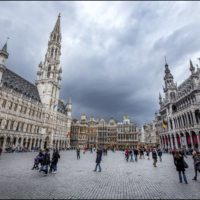
The Grand Place
The Grand-Place is the central square of the City of Brussels. All over the world it is known for its decorative and aesthetic wealth. The Grand-Place is surrounded by the guild houses, the City Hall and the Maison du Roi.
The Grand-Place is considered as one of the most beautiful places of the world. The Grand-Place of Brussels was registered on the World Heritage List of the UNESCO in 1998.
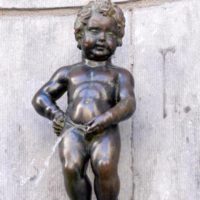
Manneken Pis
Manneken-Pis was at first a fountain that played an essential role in the former distribution of drinking water since the 15th century. The system was well-known in all of Europe.
Towards the end of the 17th century, the statue became more and more important in the city life. It was also a survivor of the bombardment of Brussels in 1695. Manneken-Pis became a precious good and enjoys a ceaselessly growing glory.
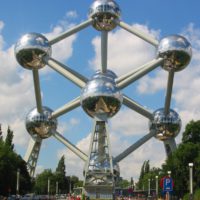
Atomium
The Atomium is an international tourist attraction. This unique piece of architecture, created on the occasion of the World Fair of Brussels in 1958, became the most popular monument of the capital of Europe.
The Atomium (at the Heysel) was created by the architect André Waterkeyn on the occasion of the World Fair of Brussels in 1958. Its original structure symbolizes an iron crystal enlarged 165 billion times.
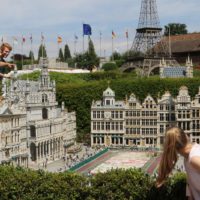
Mini Europe
Mini-Europe is a miniature park located in Bruparck, at the foot of the Atomium, in Brussels, Belgium. Mini-Europe has reproductions of monuments in the European Union on show, at a scale of 1:25. Roughly 80 cities and 350 buildings are represented.

Tour & Taxis
Tour & Taxis is a large formerly industrial site in Brussels, Belgium. The site is composed of large warehouses and offices surrounding a former train station and its spacious central hall. The buildings on the site are made of brick, glass and wrought iron, examples of the quality of 19th-century architecture.

Comic Strip Centre
An accomplished attraction located in the heart of Brussels, the Comics Art Museum has been honouring the creators and heroes of the 9th Art for 30 years.
The regularly renewed permanent exhibitions and a diversified programme of temporary exhibitions enable visitors to discover the countless aspects of comics art. Tintin and the Smurfs lead the way towards further adventures, an encounter with a world where creativity has no limits.
Enhanced by an exceptional Art Nouveau home designed by Victor Horta, the Comics Art Museum is just as much a tribute to the pioneers as a glimpse of contemporary comics art.

CHOCOLATE! CHOCOLATE!
A visit to Brussels would not be complete without visiting the Cocoa and Chocolate Museum. Watch a chocolate making demonstration, enjoy a delicious chocolate tasting and visit the chocolate exhibits that will inform you about the history of chocolate in Belgium.
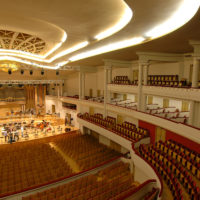
BOZAR
The Centre for Fine Arts is a cultural venue in Brussels, Belgium. Often referred to as « BOZAR » or « PSK », the building was completed in 1929 at the instigation of Henry Le Bœuf and includes exhibition and conference rooms, a cinema and a concert hall, which serves as home to the National Orchestra of Belgium.
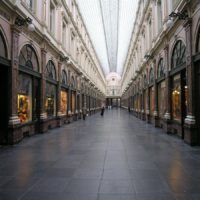
Royal Galleries
The Saint-Hubert Royal Galleries are an ensemble of glazed shopping arcades in Brussels, Belgium. Designed and built by architect Jean-Pierre Cluysenaer between 1846 and 1847, they precede other famous 19th-century shopping arcades such as the Galleria Vittorio Emanuele II in Milan and The Passage in St Petersburg.
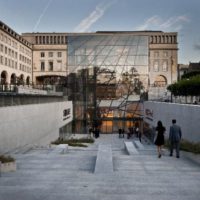
SQUARE Bxl Meeting Centre
Known for its exclusive, comfortable and contemporary design, SQUARE covers more than 10.000 m² of multi-purpose areas. This is the ideal venue for an international conference, a European summit, or even a large convention. In the building you can also find several murals of Magritte, Delvaux and Van Lint from the sixties.
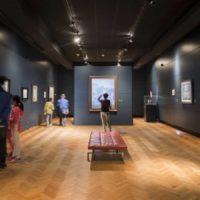
Magritte Museum
The Musée Magritte Museum, located in the heart of Brussels, brings together the world’s largest collection of the renowned surrealist artist René Magritte: 230 works and archives are displayed. The multidisciplinary space houses paintings, gouaches, drawings, sculptures and painted objects, as well as advertising posters, musical scores, photographs and films. The Museum also has the most important collection from the artist’s « vache » period.

The Royal Palace & Park
The Royal Palace of Brussels is the King’s administrative residence and main workplace, where he works daily with his staff. In his office at the Brussels palace, the King receives the representatives of political institutions, foreign guests (heads of state, ambassadors) and other guests. In addition to the office of the King and of the Queen, the Royal Palace plays host to the services of the King’s Household: the King’s Cabinet, the General Secretariat, the Civil List, the Military Household, the Protocol and the Queen’s Secretariat. The other members of the Royal Family also have an office at the Brussels Palace, where their staff work. The Palace comprises also prestige reception rooms where various activities of the King and the Royal Family are organised (work meetings and roundtables, receptions, concerts, lunches, etc.).
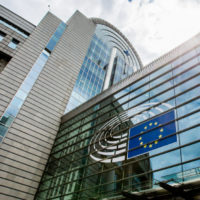
European Parliament
The European Parliament (EP) is the only parliamentary institution of the European Union (EU) that is directly elected by EU citizens aged 18 or older. Together with the Council of the European Union (also known as the ‘Council’), which should not be confused with the European Council and the Council of Europe, it exercises the legislative function of the EU. The Parliament is composed of 751 members (MEPs), that will become 705 starting from the 2019–2024 legislature (because of specific provisions adopted about Brexit), who represent the second-largest democratic electorate in the world (after the Parliament of India) and the largest trans-national democratic electorate in the world (375 million eligible voters in 2009).
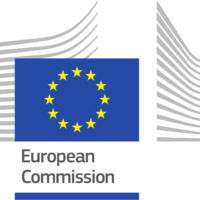
European Commission
The European Commission (EC) is an institution of the European Union, responsible for proposing legislation, implementing decisions, upholding the EU treaties and managing the day-to-day business of the EU.[2] Commissioners swear an oath at the European Court of Justice in Luxembourg City, pledging to respect the treaties and to be completely independent in carrying out their duties during their mandate.[3] Unlike in the Council of the European Union, where members are directly and indirectly elected, and the European Parliament, where members are directly elected, the Commissioners are proposed by the Council of the European Union, on the basis of suggestions made by the national governments, and then appointed by the European Council after the approval of the European Parliament.
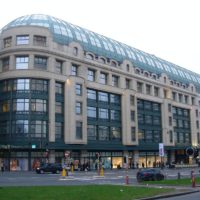
Shopping City 2 , Rue Dansaert
Next to Place Rogier, this is the biggest shopping center of Brussels. On top there is a huge Fnac store and in the basement you have really big food court with many many different restaurants. In total you have more than 150 different shops. Through this shopping center, you can walk also into Galeria Inno.
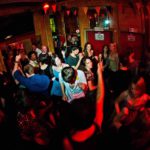
Night life
Though it has a smaller scale to work with than a lot of other European capitals, Brussels still manages to scrape together a decent clubbing scene where both the electric-adoring melomaniac and the fun-loving dance enthusiast can have a great time. Converted churches, old cinemas, and swanky parties in the middle of the woods make for magnificent settings in this list of Brussels’ most frequented nightclubs.
photo: Madame Moustache | © Alexia Machet / Courtesy of Madame Moustache


